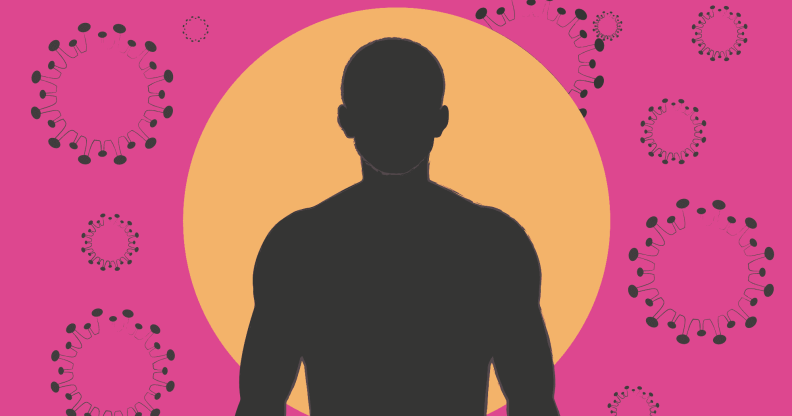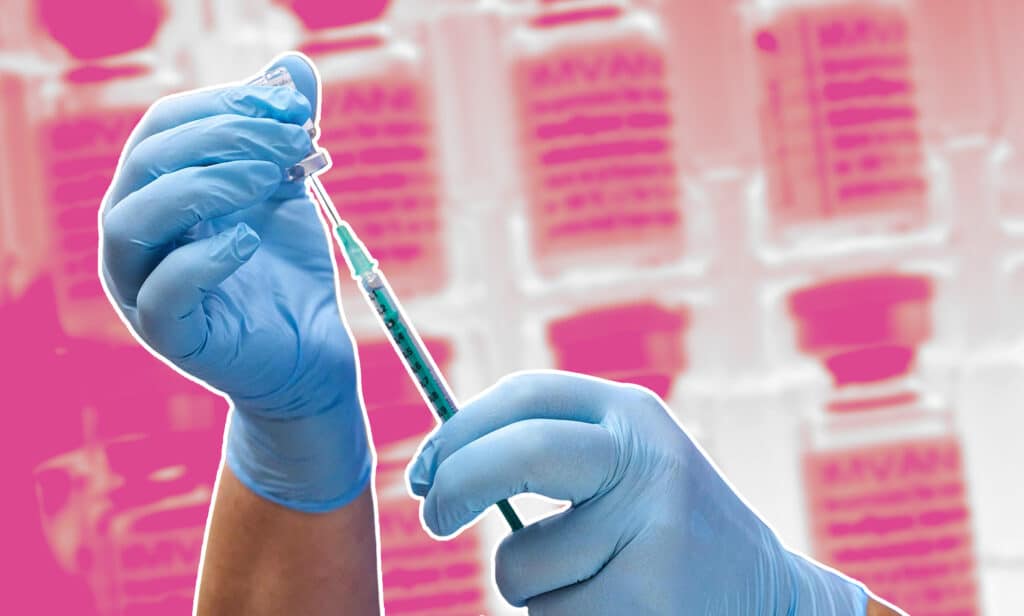Monkeypox: New research finds lesions on genitals and around anus among most common symptoms

LGBTQ+ men have been predominantly impacted by the monkeypox outbreak. (Getty/PinkNews)
New monkeypox research has found that lesions on the genitals, anus or perianal area are among the most common symptoms of the outbreak.
Researchers found that of 197 patients, 56.3 per cent presented with lesions on the genitals, and 41.6 per cent on the anus or perianal area.
The study, published on 28 July in British Medical Journal, said this “suggests lesions may initially form at the site of inoculation, followed by the development of systemic symptoms and subsequent dissemination of lesions”.
Historically, monkeypox lesions have been most commonly found on the face, palms and soles, with genital lesions less common.
“Systemic symptoms” – those which affect the entire body, including fever, swollen lymph nodes, and body aches and pains – typically came before the lesions in previous outbreaks.
But the study found that almost half of those examined suffered exclusively with “mucocutaneous manifestations” such as lesions, or developed them before systemic symptoms.
“This contradicts the current UK Health Security Agency probable case definition, which requires typical systemic symptoms to be present in addition to cutaneous lesions and epidemiological risk,” the researchers noted.
The most common symptom recorded in the study was fever (61.9 per cent) and lymphadenopathy, or swollen lymph nodes (57.9 per cent).
Scientists studied 197 men in London who had tested positive for monkeypox. Apart from one, the participants identified as gay, bisexual, or “other men who have sex with men”.

Across the world countries are rolling out vaccines for monkeypox. (Getty/PinkNews)
The study further noted 36 per cent of patients reported rectal pain or pain on defecation, 16.8 per cent a sore throat, and 15.7 per cent penile edema, or fluid retention. More than a third reported a rash.
The research also found, of those admitted to hospital, 75 per cent of the participants were HIV-positive. Fifteen per cent were considered immunosuppressed either due to HIV or immunosuppressive treatment.
None of the individuals required organ support or died. Some took analgesics to manage pain, and were discharged from the hospital after an average of eight days.
Dr Christopher Duncan, Wellcome Trust clinical research career development fellow at Newcastle University, told Medical News Today: “It is very important that both people who could be at risk of monkeypox infection and clinicians assessing them are aware of the potential symptoms that should prompt testing and appropriate isolation, to limit transmission.”
Dr John Thornhill, honorary lecturer at the Faculty of Medicine at Imperial College London, not involved in the study, explained that symptoms may be changing because “monkeypox has found a new niche” as the virus is now typically spread through “sexual contact hence the lesions are arising in sites such as the genitals and rectum”.
The World Health Organization (WHO), declared monkeypox a public health emergency on 23 July.
Monkeypox usually clears up after a few weeks. But as the outbreak spreads globally, a handful of deaths have been reported including two in Spain and one each in India and Brazil

